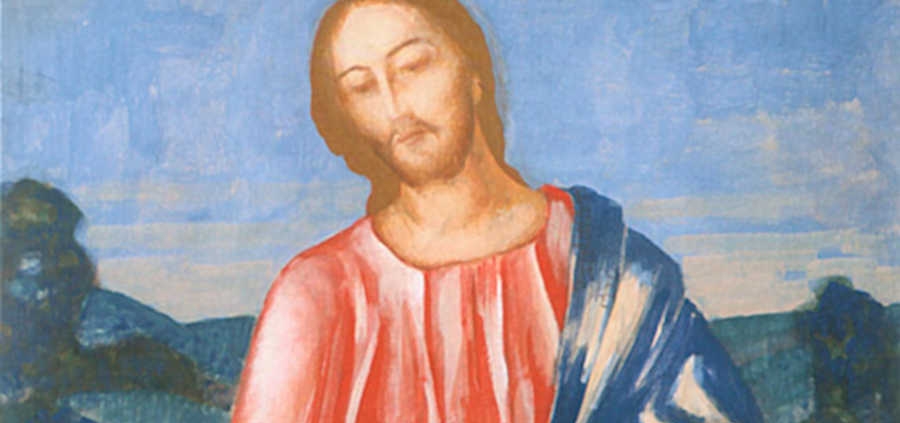Personal God by Fr. Bedros Shetilian
In my previous article about God’s existence, I pointed out that it is difficult to deny God’s existence, and that almost everybody feels there is at least something—a metaphysical existence that is more powerful than us human beings. My experience tells me that if the issue of the acceptance of God as a supreme being—as God the creator—is relatively easy, then the acceptance of a personal God—the God of religion—is much more difficult for many people.
The French philosopher and scientist Blaise Pascal (1623–1662) wrote:
God of Abraham, God of Isaac, God of Jacob,
Not of the philosophers and scholars.
Certitude. Certitude. Feeling. Joy. Peace.
God of Jesus Christ.
Here the God “of the philosophers and scholars” is conditional terminology, because there have been and still are philosophers and scientists who are real witnesses to Jesus Christ (Schopenhauer, Enrico Fermi, Berdyaev, and Pascal himself, among many others). This terminology was created by Pascal and was later widely used to highlight the distinctions of the God of religion.
The God “of the philosophers and scholars,” or the transcendent God, is a God that was understood by the effort of human beings. Philosophers like Aristotle and scientists like Einstein were among those who searched for such a God. As a result of their efforts and research, they understood that the universe could not have been created as a result of a coincidence. They came to believe that there was a supreme power and a supreme wisdom that created the universe and established its rules.
It is very interesting to quote Einstein’s words: “Anyone who gets deeply involved in the research of the universe and its rules cannot come to a conclusion other than that there is a soul who was the reason of this creation.” It is worth nothing that Einstein calls God a “soul” and not a “power” or “wisdom.” Unwittingly, the word soul comes out of his mouth, which gives God a personalized nature. This is what we call the God of scientists and philosophers: a supreme power who created the universe, who established its rules and then distanced Himself from His creation. This God doesn’t intervene. He is a somewhat indifferent to what is happening in His created universe. Today people who call themselves “spiritual” are in one way or other followers of this direction.
Different from the transcendent God is the personal God, the God who revealed Himself and is continuing to do so. We know Him not by our limited minds, but by His revelation. The personal God requires a personal, lived experience. The central document of this revelation is the Bible.
The God of the Bible, who has all the characteristics that are recognized in scientists’ transcendent God (the most important of which are perfection, mightiness, and wisdom) has something else besides: The God of the Bible has a similarity to human beings. If man was created in the image and likeness of God, then the perfection of that image and likeness is God Himself. The Bible’s God, like man, is not indifferent to His creation. Like man, He is not indifferent to His children—us. The Bible’s God, besides being perfect, almighty, and wise, has perfect goodness, a moral essence, and is the source of morality.
In spite of the fact that the scientists have in their minds the same God as the God of religion, their understanding of God deviates from the real God who has revealed Himself in history. The scientists’ understanding is based mainly on their own logic, and thus lacks the personal, lived experience that is crucial in order to know God.
What Pascal is talking about is the personal God of revelation: God who is not only in heaven, but God who is in relationship with us. This is the God who we call Father, the God who cares about us, the God who, each time we forget about the truth, intervenes—visibly or invisibly, directly or indirectly—in order to bring us back to it (Nazi Germany’s defeat during the second war, the collapse of the communism, etc.).
This is the God who speaks through great people such as Abraham Lincoln, Martin Luther King Jr., and Zareh Serpazan Aznavorian; the God who speaks through creation and the arts in the works of Saint Krikor Naregatsi, J. S. Bach, Fyodor Dostoevsky, Misak Medzarendz, and others; the God who speaks through saints and miracles; the God who speaks with us through the voices of the prophets; and, finally, the God who, if needed, can come down to be incarnated and to give His life for our salvation in the person of Jesus Christ.
Fr. Bedros Shetilian was born in Aleppo, Syria, in 1963. After high school, he moved to Armenia and then to Russia to pursue a musical education and graduated from St. Petersburg Conservatory with a master’s degree in symphony conducting. Between 1992 and 2003 he successfully worked as a conductor, with concerts in Russia, Armenia, and Europe. Fr. Shetilian attended the Catholic College in St. Petersburg and the Seminary of the Catholicosate of Cilicia in Lebanon. He was ordained as a married priest in 2003. Afterward, he was assigned to serve in the US. Since 2005, he has been the priest in residence at St. Gregory the Illuminator Armenian Apostolic (Orthodox) Church in Springfield, Massachusetts. Fr. Shetilian continues to combine both his callings as a clergyman and a musician.





Leave a Reply
Want to join the discussion?Feel free to contribute!